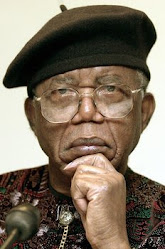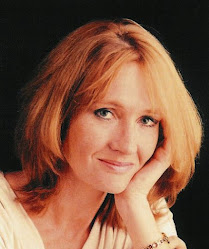 The 22nd edition of the National Universities Games Association has come and gone. Now we can all return to the drudgery of school (heavy sigh). For those of you still wondering how things went for the duration of the games, here’s a summary of every noteworthy thing that happened while I was there. You can get the distorted version from busybodies when you return.
The 22nd edition of the National Universities Games Association has come and gone. Now we can all return to the drudgery of school (heavy sigh). For those of you still wondering how things went for the duration of the games, here’s a summary of every noteworthy thing that happened while I was there. You can get the distorted version from busybodies when you return.
NUGA was supposed to begin on the 23rd of February but the opening ceremony was deferred to the 28th (big surprise). I got there on the 3rd of March and did not miss much. Everyone I queried for the purpose of this write-up agreed that the opening ceremony was marvelous. I can’t grade it because I wasn’t there but there were fireworks, "impressive ones" they all said, there was a stunt guy on a bike, and there were children performing acrobatics in the center of the half-completed stadium, bla, bla, bla.
I went to the hostels first to see how much Franco had changed. Remember we were told to vacate them so they could be renovated? You are expecting to see painted hostels, abi? You expect to see all those sports facilities that were under construction then completed to 'Olympic standards', abi? You're expecting to see painted school buildings, rusted/missing corridor railings in the hostels replaced and the numerous other changes you fantasized about as you sat at home and put on holiday weight. I love to be the one to break it to you - THINGS HAVEN'T CHANGED THAT MUCH! Ziks flats is still the old disgusting ruin it was. Presidential, Akintola, Akpabio are painted green white green and renovated, yes, but that’s only because Akintola and Akpabio were used to house “Team UNN”.
The front of the Eni Njoku and the Alvan hostels was bustling with sellers. I’m not exaggerating. Northerners were selling perfumes and large ram heads with large, intricately patterned horns. There were people selling DVD’s, sport wears, shoes, clothes, wrist watches, rings etcetera. Later that night, a lot of the people slept in front of Eni Njoku on mats made from woven sacks. Clearly they came from far away. The buses from the various participating schools were parked haphazardly in between Alvan and Njoku. In front of the Alvan hostel, there were large canopies with colourful plastic chairs. Instead of letting the foreign students go far for food, these ingenious people brought the food to their doorstep literally. They brought deep freezers, tables and one even brought a television. Students would come out of the hostel and sit down in groups under the canopies, eating, laughing and chattering. You remember those bukas by the side of Mbanefo? Students were not found there. The front of that old cafeteria by Mbanefo was painted brilliant white to lure in unsuspecting JJC students but no one was deceived. The silly people did not even try to scrub the dirty windows and dark brown floor. The strategic stationing of the canopy food sellers came at a price. Rumours were rife that the University authorities collected 25,000 naira per canopy for the duration of the games. In order to cover cost price and make profit, our enterprising caterers served food at prices from one hundred and fifty upwards. It wasn't cheap, tasteless, bukka meals, they were quite good. Meals that were of Coke Villa standard. God knows the price tag Coke Villa people put on their meals in order to cash in on the influx of students.
All the reading desks in the male hostel rooms were pushed out to the corridors to give the room users more space to maneuver. Alvan is the only Franco hostel that our school authorities bothered to paint, even though it was just the corridor walls. The painters contracted to do the job were so dimwitted, they painted atop the room numbers making it doubly difficult to locate rooms. One good thing was that those motherly female cleaners were sent to mop their rooms as often as possible. Guys you know how when you go to get mattresses from the hostel porter you get flat compressed stuff that’s so black with dirt you wouldn't even use it to wipe your shoe? Well, the school bought thousands of brand new Vitafoam mattresses and pillows and gave them out to every student quartered in our hostels!
I had to find out how neat Franco was first-hand and what better way to do that than by using the facilities. I bathed in bathroom on the 324 -345 wing of the Alvan hostel. Guys, you know how our bathrooms usually are – dirty, smelly and dark, which is why most of us don’t bathe at night (sorry). It was different for these guys. They had showers running almost 24/7 and the bathrooms were well lit. The stench of urine and shit was gone even at night when that area is usually in its worst possible state. The bathroom was actually so clean that even you an old timer would CONSIDER picking your bathing soap if it fell on the floor! I know! It sounds unbelievable but it's true! Each school was given one side of the hall series, for instance IMSU took 324-345 and another school resided in the opposite series 301-324.
There was a free HIV testing service by some people from GHAINS (Global HIV&AIDS Initiative something something….) They even handed out free condoms to all who requested. You know how promiscuous young people can be now... The street lights (the ones that use electricity, not those dead "solar powered" ones) were functioning fine and the entire school was well lit. In all the time I’ve lived in that school - which is nearly three years, I’ve never seen every where as well lit as it was during this period. NEPA seemed to be giving light 24/7.
Now to the memorable sports events. Here’s how it happened. A lot of sports went on simultaneously. The result was that people hopped from one event to another. SWIMMING was one sports event that pulled crowds as large as those who gather for football matches. Was it an ordinary fascination with the sport or just a love for seeing semi-nude/scantily clad humans race each other underwater? Either way, I was with them cheering, whistling and clapping. I watched swimming for most of Wednesday the 11th. The competitors from Uniport are terrific swimmers! They were moving through the water with superb grace and agility. UNN kept coming second, second, second….in the underwater races (deep sigh).
Some competitions were as gripping and revealing as the garbs (tights) of the participants. Take for instance, the track events. It was da bomb! I’m not saying that because our school was winning - our contestants were running as if the FREE-3 times-a-day Chitis food provided by the school for the entire duration of the event, did not digest well. It was "da bomb" because watching people sprinting gives you an incredible adrenaline rush. Everyone in the stands where I sat (mostly UNN guys & babes) were screaming advice and cheering for contestants from other schools and laughing at our own contestants openly. We however strongly defended our school when students from other schools (a.k.a haters) verbally attacked our own Obinna Metu, a superbly gifted sprinter (Yes, he’s the same one that went to the Olympics). The haters were like he shouldn’t be competing because he’s way above this level of competition and all that kind of stuff…that one na their business sha, you know as jealousy dey do people. The boy won us gold medals and we cheered every time we saw him.
The NUGA organizers brought three Nigerians who had excelled in sports internationally. Mary Onyali, Mrs. Ogunkoya and a sports man whose name I can't remember. The last two characters were forgettable anyway. Mary Onyali was the most visible sports celeb in the stadium. She was in charge of coordinating the field and track events and she had to walk around a lot, but she didn't let that prevent her from looking so damn good. She’s fashionable and physically fit. So that while Ogunkoya and the other man had many pockets of flab on their sides, their fronts, and other unmentionable body areas, Onyali was fit, full in all the right places, eye-catching, stylishly sophisticated and so chic! A few people told me Chioma Ajunwa, another of Nigeria’s internationally recognized sportswomen, attended the event a few times. The day of the closing ceremony was Onyali’s birthday and the school band serenaded her.
A lot of dignitaries attended the closing ceremony (it was shown live on NTA) and they were very proud people. Their convoys rode onto the race tracks and dropped them in front of the VIP stand, in full glare of everyone. The only one who did not follow that shameless pattern was Chris Ngige, the politician and former Anambra state governor. The crowd cheered and gave him a standing ovation as he walked towards the stands, instead of the angry muttering from the crowd others got for their pompous behaviour.
IMSU won the football match final. The match was played on Franco pitch because the grass on the field in the stadium hadn't grown (it was planted very late). They came into the stadium cheering and we did not give a damn. The dignitaries kept speaking and UNN students eyed them. Then they decided to forcefully grab the attention we robbed them. They ran from the left side of the stadium to the right, waving, chanting, yelling and playing with a ball. They came in front of the VIP stand and they were shooed away by officials. Then they went to a corner and one of their guys took the ball and did tricks we have never seen..... WOW!! Can you guess what happened next? NTA turned away from the dignitaries and focused on them, people ran down from stands onto the field in the middle of the stadium in large numbers and gathered around them. Even the policemen were watching the boy do his tricks. It was rebellious and rude, but it worked! This went on for a long time until the dignitaries got angry and they sent a man to stop them. The crowd which had been whistling, clapping and cheering for this lone performer from the IMSU team, started booing angrily at the security official that ran forward to stop the team. The IMSU teams stopped entertaining everyone, but they had been SEEN, they were recognized. It’s a risk a lot of people would not have dared to take, but the IMSU team had wasn't lacking balls. For a few dazzling minutes, they had the eyeball of everyone in the stadium, dignitaries included, and all those tuned in at home.
For the closing ceremony children came in huge numbers and did a different version of the acrobatics they performed at the opening ceremony. The children did well and we applauded not because we were blown off our seats but because of the effort we knew the children must have put into the synchronized performance. After they left, some old men and two very young girls from an obsolete eastern band came on to entertain but were nearly shooed off the field after several minutes for their boring performance. The band did our school anthem and it was quite good. That and their performance of “We Are The World” are the only memorable numbers they performed. "We Are The World" was memorable not because they performed wonderfully but because of the power of the song itself. Everything else that day was uninspiring. My conclusion? The closing ceremony was nothing like the opening one. Later that night, there was a bonfire in front of the Akintola & Akpabio hostels and a beauty contest tagged "Miss NUGA". Predictably, a University of Nigeria student won even though everyone agrees she wasn't "all that".
UNN tried but we could have done much, much, much, much better.We were second many times to schools like UNIBEN, UNIPORT, UNIMAID, IMSU, MICHAEL OKPARA, and many times we did not even make it into the Top 3 lists. UNIPORT won the competition with 21 gold medals. UNN had 20 gold medals .
NUGA was entertaining even in unconventional ways. No matter what you’re telling yourself right now, the truth is you missed a lot. The next one is in 2010 to be hosted by UNIBEN.
Originally written and posted to my Facebook account on March 10th, 2009. It's a follow-up to my previous blog post Is UNN Ready For NUGA 2008?
-------
I visited Chimamanda Adichie & Chinua Achebe's old house on the University of Nigeria, Nsukka campus! Read my post HERE!
[Image via Information Nigeria]
 Abike Johnson is the daughter of Olumide Johnson, a very wealthy businessman. She knows what she wants and she knows how to get it. The roadside hawker she comes across on her way back from school one day is striking enough to cause her to break one of her personal rules. She attempts to connect with him romantically despite the glaring disparity in economic status. As the tale progresses a lot of things begin to unravel.
Abike Johnson is the daughter of Olumide Johnson, a very wealthy businessman. She knows what she wants and she knows how to get it. The roadside hawker she comes across on her way back from school one day is striking enough to cause her to break one of her personal rules. She attempts to connect with him romantically despite the glaring disparity in economic status. As the tale progresses a lot of things begin to unravel.





















